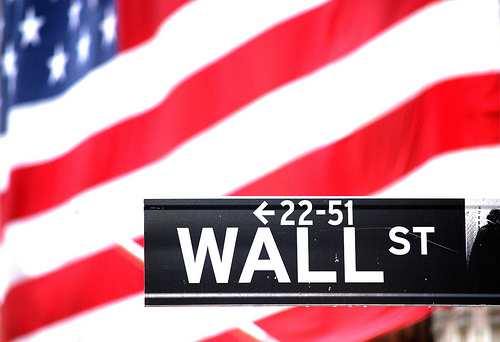Should Wall Street Be So Sure About Greece Deal?

Please note that we are not authorised to provide any investment advice. The content on this page is for information purposes only.
Wall Street hit its biggest four-day rally last week amid optimism that Greece will avoid default. The Dow Jones Industrial average was up 153 points, S&P’s 500 Index went up 13 points – even our Consumer Confidence Index registered optimistic activity in the US after a long period of pessimism. But is the US celebrating too soon?
With news of Greek lawmakers approving the second critical legislation tied to austerity, coupled with stabilizing US housing market data, Wall Street cheered and ended the week in positive territory.
Wall Street hit its biggest four-day rally last week amid optimism that Greece will avoid default. The Dow Jones Industrial average was up 153 points, S&P’s 500 Index went up 13 points – even our Consumer Confidence Index registered optimistic activity in the US after a long period of pessimism. But is the US celebrating too soon?
With news of Greek lawmakers approving the second critical legislation tied to austerity, coupled with stabilizing US housing market data, Wall Street cheered and ended the week in positive territory.
Still, the lingering fear remains that Greece would not be able to meet its international financial obligations, given its economies inefficiencies and dull recession.
What if Greece Defaults Anyway?
In the dreadful, yet plausible, scenario that Greece defaults, it spells the threat that central banks and lenders would cut back drastically on lending activity, signaling start of a slowdown of the global economy. For the US, such an external global shock would only jeopardize its recovery process as it continues to deal and grapple with the aftershocks of its 2008 subprime crisis.
According to a report from Fitch Ratings, key US funds have half of their assets held in European banks. While US banks have limited exposure to Greece, exposure to european funds that have Greek debt holdings is another cause for worry should the Greece bailout falter.
As hopes for the Greek aid package rise, so did the euro as it rose against the US dollar over the weekend, rekindling renewed inflationary fears and casting a doubt over the outlook of global crude oil prices. For an import-oriented and oil-hungry economy such as the US, these effects can be potently crippling.
The current crisis in Greece poses the most urgent and pertinent challenge yet for the eurozone and its unified currency. Over the weekend, Greek lawmakers secretly heaved a sigh of relief as they passed two key austerity bills, allowing for the inflow and distribution of the next tranche of aid from the EU and IMF, a move that promises to keep Greece solvent in the following months. Despite sharp criticism from experts and the Greek public, this legislative success would allow for extensive budget cuts and asset sales.
The absence of bad news from the Greek front in recent days managed to raise battered spirits around Wall Street, but it does not mitigate the long term economic woes that Greece is entrenched in. While Greece may have been able to escape a default this time around, the lack of an assertive and convincing recovery plan limits any hopes of real signs of progress.
So should Wall Street be so sure about the Greece deal?
Perhaps, even if the US is still mired in its own financial crisis.
Or, perhaps, the US would default on its own debt before Greece does.




